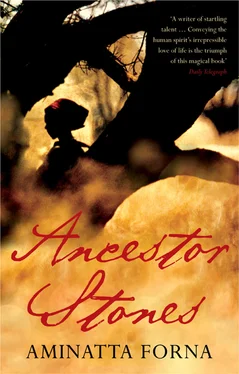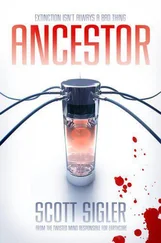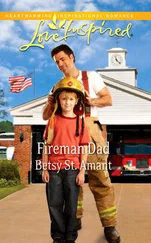Against the glare of the sky the outlines of the houses begin to wobble. At this time of day the village is empty. Pools of rice spread out to dry in the sun. Rows of raffia stiffening and bleaching. But no people, for they are down in the fields and in the coffee grove. Only the elders are here, sitting in a row on the bamboo bench on the other side of the square from the meeting house. The old women sit on their porches. Everybody sits and waits for the day to end and the people to come back.
Behind me Madam Bah is talking. Still. While she counts out the money.
A man with woman trouble: ‘Don’t ask me. I mind my own business. But they say now he’s gone. Gone to fetch her back.’
Sucking her teeth, a new stranger in the village: ‘I hear he plans to stay. Well, we’ll see.’
The prayer meeting. Madam Bah’s husband the Fula carried news of this one from the town. He goes there on business. I try to imagine it. Imagine the town. And the Fula in it doing business. Running around in his white djellaba and baggy trousers. I cannot. I have never been to the town. I don’t know what business is. Though sometimes he does it with my father. My father says Fulas are honest because they believe that one penny of profit dishonestly made means they will lose the whole fortune. Me, I don’t think Madam Bah believes that. But then she’s not a real Fula. Just married to one.
It’s a big prayer meeting this time.
‘The Fula says there are so many people in town for this thing. Some all the way from Kabala. It’s going to be one big wahallah!’
‘Will you go?’
‘The Fula says we should. But I said: “Bo, leave me.” Let him go. I’ve too much to do already.’ And Madam Bah exhales so that her shoulders sag. She leans forward and beckons my mother close. Like she has a secret to tell her. And she takes my mother’s hands in hers and slips some coins soundlessly across. My mother knots the coins into a corner of her lappa .
She reaches a hand out behind her. Already moving away. Confident that I will catch it. And I do.
‘So that’s that.’
‘Until next time.’
I wave to Bobbio.
My Face.
Let me tell you about My Face. That day, at Madam Bah’s shop, I didn’t know about it. Nobody teased me. Not Bobbio. Not even the other children. We had no mirrors. We didn’t look at our reflections in the streams, the way they show us in films, kneeling down to stare at our features rippling in the water. We only knew ourselves by the reactions of other people. People might turn to look at you because you were so beautiful. Or because you were disfigured.
Madam Bah had a consignment of mirrors. Small squares of glass — some already chipped — with silvered backs. She let me hold one. In no time children crowded around, trying to see their own faces. The shopkeeper had known what she was doing — letting us play with one of the precious mirrors — because in no time the grownups came over to see what the commotion was about.
First I was too pleased just to see my own reflection. I turned this way. My reflection turned the other. I smiled, she smiled right back at me. It wasn’t long before we were poking out our tongues and pulling faces at each other. The mirror was passed from hand to hand. Everyone took one turn and then another. This time I winked. Right eye. Left eye. Right eye. Left eye. Left eye. I wiped the smeared surface of the mirror. Left Eye. I looked again. I stared at myself for a long time, until somebody snatched the mirror away. I put my hand up to my face and touched it. Traced my features, conjuring through fingertips the image still in my mind — my eye stretching down towards my mouth, lower lid pulled open. Exposed pink. A face made of wet clay somebody had dragged their fingers through.
At bedtime my mama rubbed her nose against my face. Nose to nose. Right eye. Left eye. The sloping eye and the straight. I was a happy child. Later I wondered what she made of it. For a long time I tried so hard to remember. What did she wish for when she spoke to the stones? When she asked them things. Did she ever ask them to make it right?
Haidera. Haidera. Haider Spider. Haidera Kontorfili.
Haidera Kontorfili said he could turn the sun into the moon and the moon into the sun. He could tell whether an unbroken egg would hatch a rooster or a hen. Every living creature knew his name. Whoever did not obey the rules of Annabi would one day be put to death. Unmarried women were Black Dogs. One day fire would come like rain and plague, would strike the unbeliever down.
He told us we should not fear the Europeans or pay the potho’s taxes. And of all the things Haidera said, it was this last one that brought the trouble down upon his head.
We are to go to the prayer meeting. The preparations take two days. Mutton roasted. Yams baked. Whole fishes fried. Ginger pulped for ginger beer. Black-eyed beans skinned, mashed, wrapped in banana leaves for oleleh . Sleeping mats, country cloths, canvas tents. A stove to boil water for coffee. The men haul sacks of rice and cut down great hands of bananas and plantains. I chase after high-stepping hens, push them into a basket, from where they protest in indignant tones.
The town is no more than the headquarters of one of the country’s poorest provinces. And yet I fear becoming lost. Noise pounding my ears, dust dry in my throat, air too hot to breathe. Looking this way and that. We huddle together, suddenly diminished. The streets are wide as rivers. The houses have rooms built one on top of the other. I watch as people walk up outsidestaircases. They look as though they are stepping through the air. Walking on air. Why doesn’t someone build a staircase all the way up to the sky, I ask myself? To find out what is really there.
We cross the street at the roundabout: cracked concrete covered in yellow grass gone to seed. Two men heave a handcart, one pushing, one pulling. Their naked muscles glisten and flash with sweat. A man with a monkey on a chain. It lurches forward, startling me — a tiny, wizened, old man’s face and a baby’s cry. Hawkers selling food. A man standing next to a barrel of water. A tin cup dangles on a string. My father calls him over. ‘Sssss!’ We wait while the man lugs the heavy barrel over. It takes a little time. My father drinks first and then the rest of us, one after the other.
In the main square a hundred families jostle for space. Men in inky-black robes stroll through the crowds or stand in pairs around the perimeter. One of them greets my father and directs us. We settle, light fires, spread mats, erect screens and awnings. The sun is high, our shadows like small pools of black wax. In the shade of the canopies we rest, we wait.
I am sure I am too excited to sleep. I put my head in my mother’s lap, breathe. I feel her stroking my hair, her fingers rustle when she touches the rim of my ear. Dream fragments float past behind my eyes. A bird woven out of string. Crows that shift shape into blackclad men. Staircases leading from cloud to cloud. And I sink through air as heavy as water, as if weighed down by sodden wings.
I am woken by a sound like a buffalo’s roar. All around me people are standing, getting to their feet. I scramble up, crane my neck. Nothing. I am too close to the ground.
‘Haidera! Haidera!’
Now I see him. Standing high up above the crowd on a platform: a man whose robes billow around him, even more full than those of my father, but plain, entirely unadorned. He wears a white turban. Around his neck an amulet swings on a leather cord.
‘Allahu Akbar!’
‘Akbar Allahu!’
People bow down, snatch handfuls of sand from the ground, rubbing their hands one over the other as though in water. Ahead I see my father wipe his hands across his face. He bows, kneels. My mother next to me, she does the same. I keep my eyes fixed upon my father as we pray under Haidera’s command: standing, bending, kneeling, stretching our necks like herons to touch our foreheads to the ground. The movements, the pattern, the rhythm, they are just like a dance.
Читать дальше












